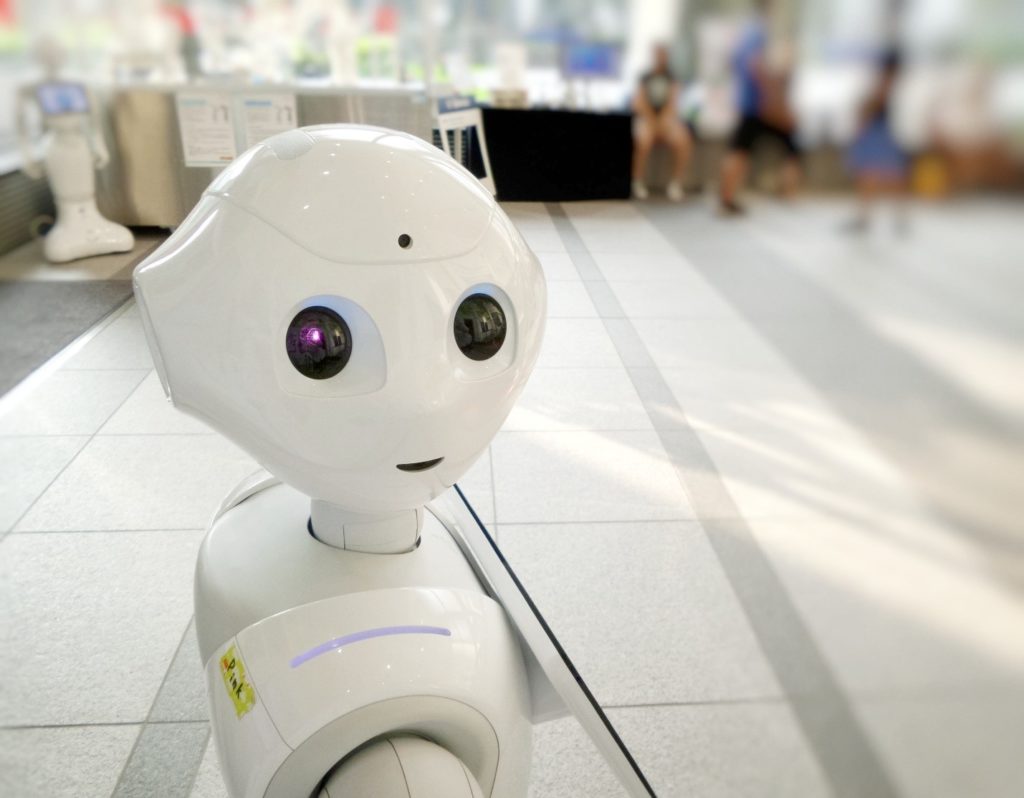A Debate Over the Use of Artificial Intelligence in the Hiring Process
By Ian Jackson 10/25/2019
As the field of Network Operations carries the mission to ensure that the computer network is secure from human error to sensitive information from within an organization and from threats outside of it, the use of artificial intelligence (AI) to aid in the hiring decision making process within human resources departments is receiving more attention. It is believed to enhance the hiring process, however, people possess psychological affinity for those similar to them, something that presents issues of bias in the workplace. This teamed with the fact that machines follow the instructions programmed by individuals, it is possible that instead of helping to find the best candidates during the job selection process, it may reinforce the inherent biases in place, hindering organizational progress.
AI uses algorithms and various programming designed to help a machine to troubleshoot tasks on its own. The Saas Institute, Inc. website explains that “Artificial intelligence (AI) makes it possible for machines to learn from experience, adjust to new inputs and perform human-like tasks…Using these technologies, computers can be trained to accomplish specific tasks by processing large amounts of data and recognizing patterns in the data.” This still means that it follows complex instructions with the ability to analyze an exorbitant amount of data.
There are those who believe that AI will help the hiring process. An article written by Meghan M. Biro located on the TalentCulture.com website entitled 7 Reasons AI Will Take Over HR — and 1 Reason It Won’t states that “AI is increasingly being used to automate many HR processes, and it appears automation is going to pay off big time. A study from McKinsey projects that AI will drastically change business, no matter the industry: ‘AI could potentially deliver additional economic output of around $13 trillion by 2030, boosting global GDP by about 1.2 percent a year.’” But, how can machine learning, through the use of artificial intelligence, help to bring about an accurate and efficient hiring process?

The question involving how machines can possibly recognize psychological profiles
can be answered by researchers who claim that artificial intelligent machines can correctly identify human personalities. Aishwarya Singh wrote an article entitled An AI Algorithm Detects your Personality by analyzing Eye Movement! stating that the AI tracks eye movements to achieve the feat. The experiment included the observation of 42 participants, says Aishwarya Singh, who further reports how the AI can “…identify four personality traits -neuroticism, extroversion, agreeableness, and conscientiousness.”
Although this appears to support the claim of high efficiency, it is important to note that computers can be utilized to reflect bias decision paradigms instead of reducing them. For example, Dr. Jordan B. Peterson, a Psychology professor at the University of Toronto and renown speaker, suggests that conscientiousness plays a role in selectivity. According to Peterson’s Twitter post “…Conscientiousness is more likely to select ‘paper shufflers.’” Additionally, a Sciencedaily.com article reports how Volkswagen programmed its computers to register fraudulent emission readings information through a computerized device, which can imply that decision biases can be programmed into artificial intelligence based machines.
The fact that AI can be a tool for bias decision making is a human problem. According to Does Hiring for ‘Culture Fit’ Perpetuate Bias? by Mel Hennigan and Lindsay Evans, subjective attitudes towards hiring paradigms of employers are discussed. For example, the article cites interviewees stating “‘I’ll know the right candidate when I meet him,’ they’ll say. Or, ‘We didn’t click. I don’t think that candidate will fit our culture.’” Furthermore, Hennigan and Evans also discuss that as hiring managers consider applicant suitability according to a personality based criteria, an organization may hinder its “…ability to innovate because of its homogenous workforce.” Also, the Myers & Briggs Foundation website states “People in the same profession often have similar types. For example, law enforcement officers in Australia, the United Kingdom, and the United States show preferences for ISTJ and ESTJ.” These testimonies counter the argument that AI will be effective in reducing bias if they are programmed to follow the aforementioned hiring paradigms.
Human selectivity, concerning personalities, can go beyond the hiring process. The Myers & Briggs Foundation website further supports this aspect of hiring through the following statement of how people select pets according to their temperament type stating, “Business people in various cultures in North America, Asia, Africa, and Europe were grouped according to temperament pairs (SJ, SP, NF, and NT types). When asked to select an animal to represent their groups, they selected similar animals, as appropriate to their physical environment: The SJ types chose loyal hard-working animals, the SP types chose independent adaptable animals, the NF types chose companionable animals who engaged in teamwork, and the NT types selected animals of competence and vision.” Animals aside, this is important to understand because it implies that a preference for selection according to likeness is ingrained at a profound level. This affects the hiring process as people with certain personality types are excluded. The solution for this is for computer programmers to incorporate instructions designed to counter these inherent biases in decision making process.

As organizations are on a quest to optimize, network operations personnel should provide objective input regarding the implementation of artificial intelligence within organizations. The consideration of whether artificial intelligence provides the technological edge to improve the hiring process should be guided by the understanding human nature affecting decision making process.